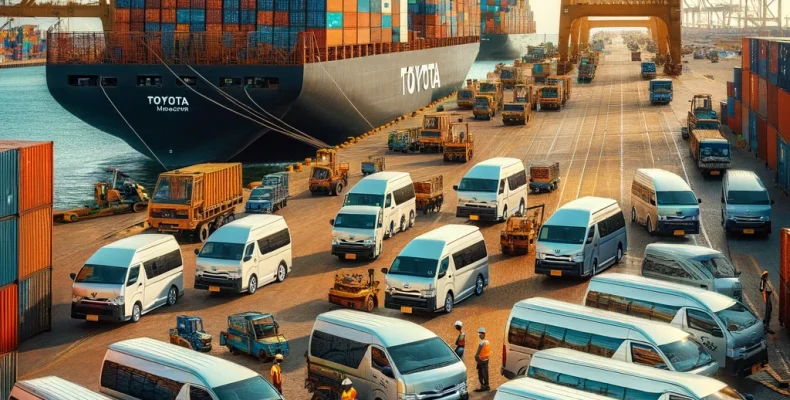Introduction
Embarking on the journey of importing a used Japanese car into Mozambique is both exciting and intricate. With Japan’s stellar reputation for quality and reliability in automotive manufacturing, this option presents a perfect blend of value and excellence. This guide is designed to navigate you through the updated duties and taxes for a seamless import process.
Mozambique Import Regulations Demystified
Ensuring Your Vehicle Meets the Mark
Before selecting your ideal vehicle, grasp Mozambique’s import regulations. These rules are pivotal for a smooth importation process, especially regarding vehicle age and engine capacity. Adherence to these guidelines is crucial for successful importation.
Selecting Your Vehicle
Making an Informed Choice
When choosing your vehicle, consider Mozambique’s specific criteria on age and engine size. This strategic selection is vital for hassle-free customs clearance.
Partnering with a Top Exporter
Finding a Reliable Export Company
Choosing a trustworthy exporter is key. Consider these highly recommended companies known for their reliability and customer satisfaction:
SBT Co. Ltd.
Be Forward
EVERY Co., Ltd.
Qualitex Trading
Autorec Enterprise Ltd.
These exporters offer an extensive range of vehicles that comply with Mozambique’s regulations.
Top Recommended Japanese Used Car Export Companies for International Customers
Understanding Duties and Taxes
Accurate Costs for Informed Budgeting
When importing your vehicle, be aware of the following updated duties and taxes:
- Vehicles over 1500 CC: Subject to a custom duty of 40%.
- Vehicles under 1500 CC: Enjoy a lower custom duty of 25%.
- Mini Buses: Exempt from custom duty, providing significant savings.
- Single Cabs: Attract a custom duty of 20%.
Import Duty and VAT
- Import Duty: This rate applies based on the vehicle’s engine displacement, as detailed above.
- VAT (Value Added Tax): 17% on the sum of the CIF value (Cost, Insurance, Freight) plus import duty.
Environmental Tax and Specific Consumption Tax
Applicable under certain conditions, these taxes aim to encourage the importation of environmentally friendly and fuel-efficient vehicles.
The Importation Process: A Clear Path
1. Vehicle Selection and Purchase
Choose a vehicle that aligns with Mozambique’s regulations, and complete your purchase through a trusted exporter.
2. Shipment and Arrival
Your exporter will manage shipping to Mozambique, typically through the Maputo or Beira ports.
3. Customs Clearance
Upon arrival, clear your vehicle through customs by paying the relevant duties and taxes. Hiring a customs agent can streamline this process.
Conclusion
By understanding Mozambique’s import regulations and the updated duties and taxes, importing a used Japanese car can be a straightforward process. This guide ensures you’re well-prepared to navigate the complexities of importing, bringing you closer to owning your ideal car.
If you want to know more details about Japanese used vehicle exporting, please refer to Wikipedia.
